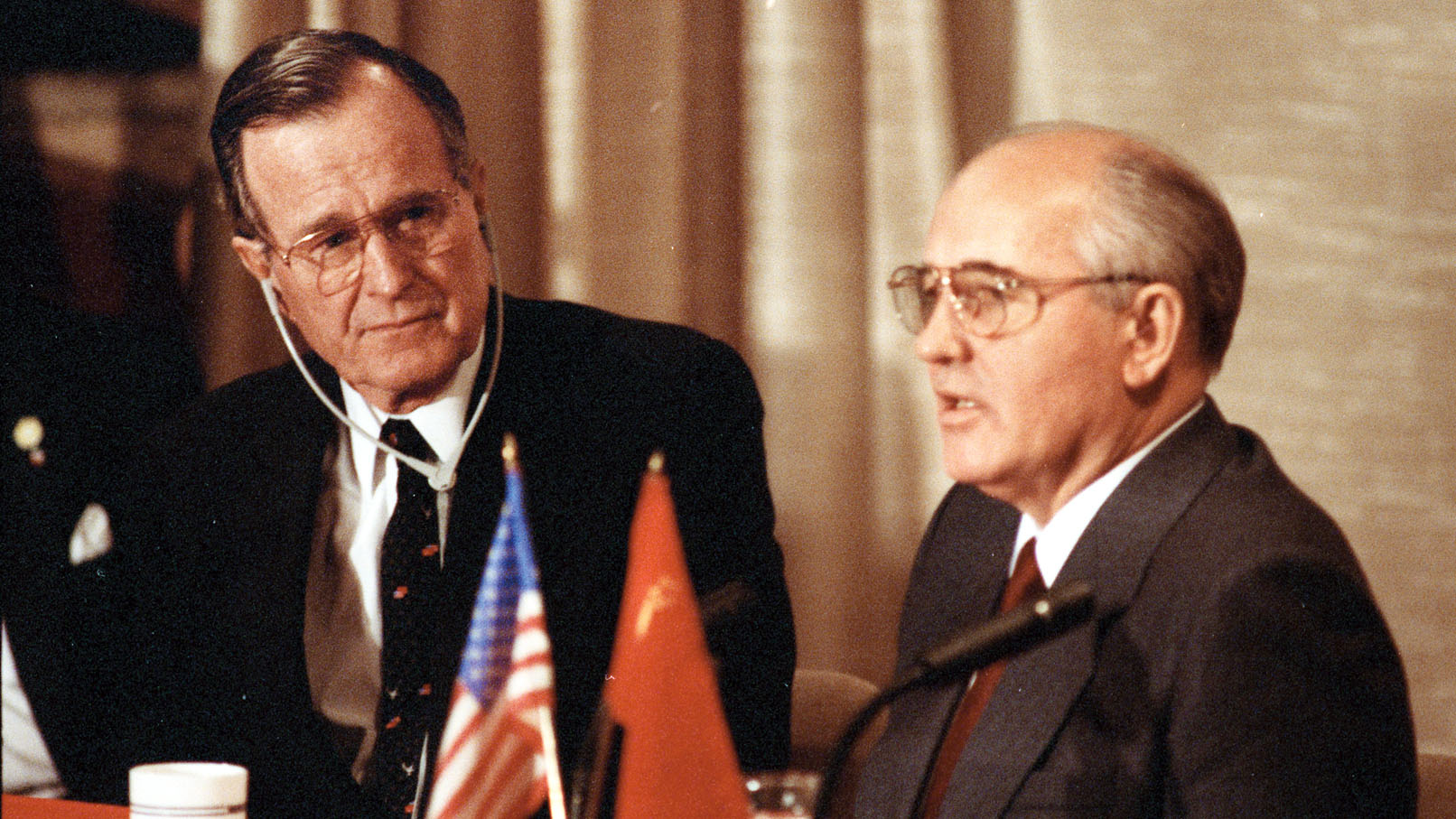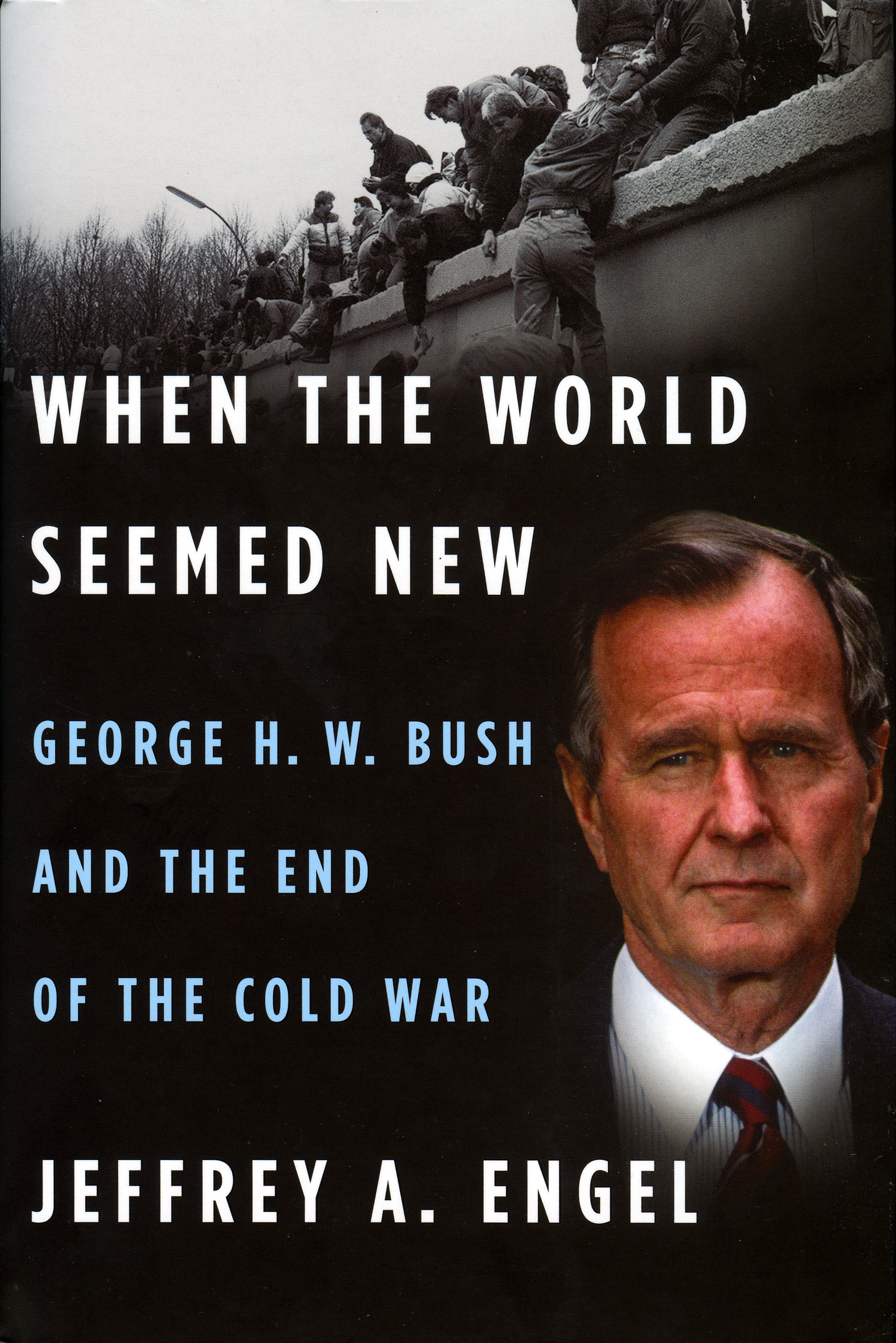When the World Seemed New:
The collapse of the Soviet Union at the end of 1991 was widely perceived as a victory for freedom and democracy – the end of the Cold War. Yet it threatened to be a destabilizing victory as the balance of global power shifted.
By Kim Cobb
SMU News and Communications
DALLAS (SMU) – The collapse of the Soviet Union at the end of 1991 was widely perceived as a victory for freedom and democracy – the end of the Cold War. Yet it threatened to be a destabilizing victory as the balance of global power shifted.
Jeffrey Engel, founding director of SMU’s Center for Presidential History, has written a compelling new book that reveals how President George H. W. Bush navigated the choppy waters that followed. When the World Seemed New: George H.W. Bush and the End of the Cold War (Houghton Mifflin Harcourt, 2017) is now available. Engel will discuss and sign the book at a public event on the SMU campus at 6 p.m. Nov. 14 in the Mack Ballroom of the Umphrey Lee Center.
“Though researched and written well before the age of Donald Trump, the book reveals a truism of international politics: that experience matters,” Engel said. “The Cold War's end was the greatest and most dangerous international crisis since Soviet and American forces squared off over Cuba in 1962. Only an experienced diplomat could have kept unrest from turning to chaos, and chaos to war.”
 George H. W. Bush and Mikhail Gorbachev at Malta, December 1989 - the first time ever that an American President and Soviet General Secretary held a simultaneous joint press conference. Photo courtesy of the George Bush Presidential Library and Museum. |
Engel’s book is based on unprecedented access to previously classified documents and interviews with key policymakers. He is a longtime student of Bush ’41 and his presidency, having previously written The China Diary of George H.W. Bush: The Making of a Global President (Princeton University Press, 2008). He also has authored or edited eight other books on American foreign policy.
“The Cold War’s end offered peril and promise,” said Stephen Hadley, who served as National Security Adviser under President George W. Bush. “Instability loomed. Yet Bush’s personal diplomacy ensured Germany’s successful unification, the Soviet Union’s peaceful collapse, victory in the Persian Gulf and preservation of Sino-American relations after the horror of Tiananmen Square. His reputation as a statesman has rightly grown over time. Peering into the halls of power on both sides of the Iron Curtain, and in the Oval Office in particular, Engel’s gripping account shows us why.”
SMU’s Center for Presidential History and the George W. Bush Presidential Library and Museum will host Engel’s book signing and lecture at 6 p.m. Tuesday, Nov. 14, in the Mack Ballroom in the Umphrey Lee Center. The event is free and open to the public but registration is required at www.smu.edu/cph.
Engel interviewed by MSNBC - Morning Joe.
Engel interviewed by CBS 11 News.
###
Related Links:
- The Dallas Morning News: Here's how George H.W. Bush guided America through the turbulent end to the Cold War
- KERA: Think: The Worldly President: George H. W. Bush
22019-nr-11/01/17-kc

